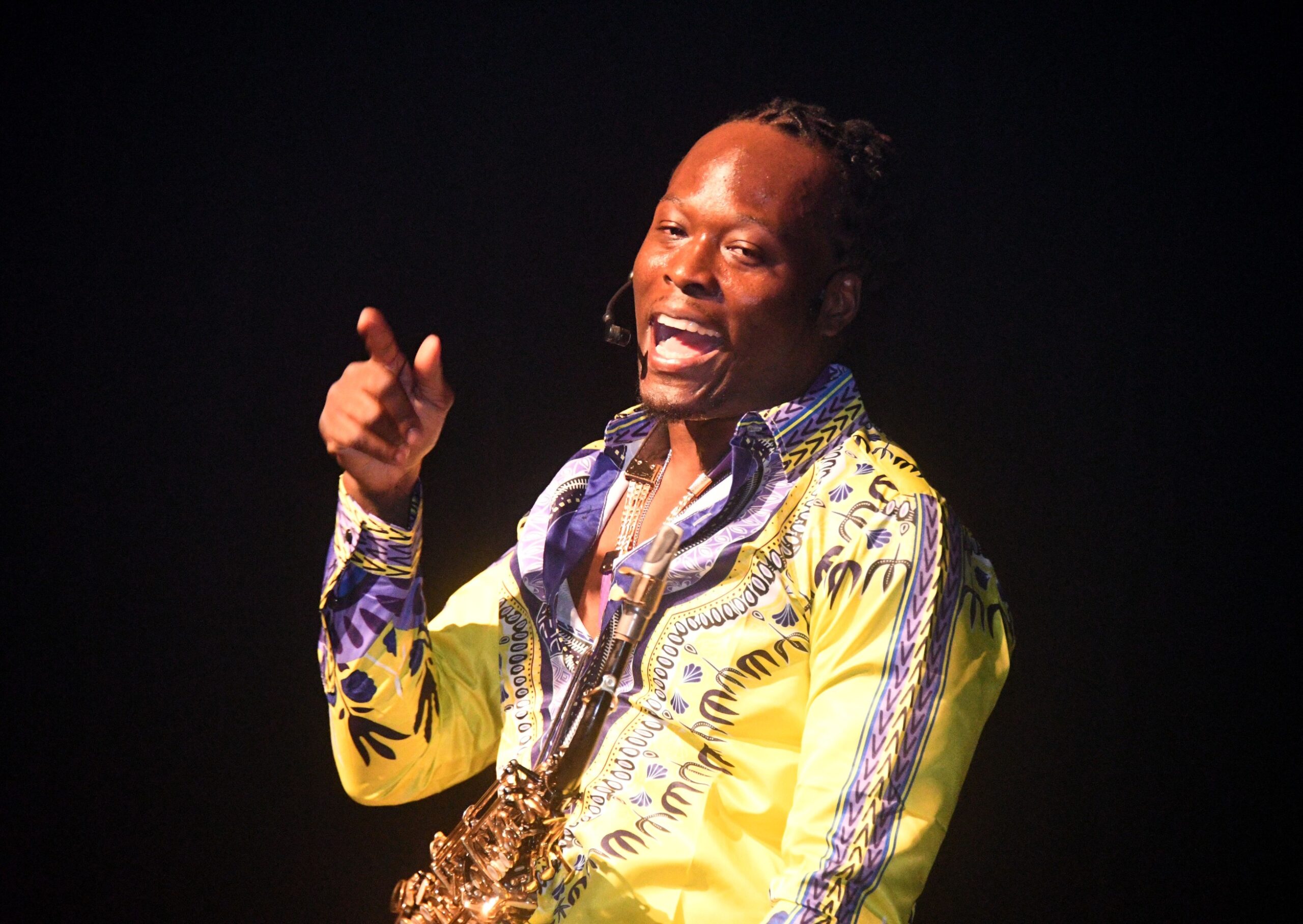The Future of Influencer Marketing: Micro-Influencers & Community Engagement
In the rapidly evolving world of influencer marketing, a significant shift is taking place, moving the focus from celebrity-like figures to the more relatable micro- and nano-influencers. This pivot is driven by a growing demand for authenticity and deeper community engagement. Recent insights reveal that 69% of consumers trust influencers’ recommendations, highlighting the impactful trust these influencers have built with their audiences. In this blog, we’ll break down exactly how these changes impact the future of influencer marketing and what it will look like in 2024.
The Influencer of Old
In the late 20th century, the concept of influencer marketing began to take shape, albeit in a form vastly different from today’s digital landscape. This era was dominated by celebrity endorsements, where notable figures from the worlds of film, music, and sports lent their fame to brands, significantly influencing consumer behavior. The Marlboro Man and celebrities like Michael Jordan, who famously collaborated with Nike, exemplify this trend, where endorsements were synonymous with aspirational lifestyles.
As we transitioned into the early 2000s, the rise of the internet and blogging platforms marked the evolution of influencer marketing. The digital realm opened up new avenues for brands to engage with audiences through individuals who had garnered significant followings online, not for their celebrity status, but for their content and perceived expertise in niche subjects. This period saw the emergence of “mommy bloggers” and tech reviewers, who began to challenge traditional celebrities in terms of influence on consumer purchases.
The advent of social media platforms like Facebook, Twitter, and eventually Instagram further democratized influence, giving rise to social media influencers. Figures such as Kim Kardashian, Logan Paul, and even actors like Selena Gomez became emblematic of this era, commanding valuations of up to 2.3 million dollars for a single post on Instagram.

The influential celebrity’s ability to reach millions of followers with a single post, combined with the authenticity and engagement that social media facilitates, underscored the shifting dynamics from traditional celebrity endorsements to influencer marketing. At the height of this shift, Twitter, Facebook, and particularly Instagram posts were not just promotional tools but cultural touchstones that set trends, drove sales, and impacted the broader digital marketing strategies of many brands. The popularity of these celebrities even helped to usher new phrases into the lexicon, including the popular term “break the internet.”
However, as the digital landscape evolved, so did the dynamics of trust between influencers, celebrities, and their audiences. The once unshakable trust in celebrity influencers began to wane, marred by several high-profile controversies and inauthentic brand collaborations.
Celebrity Influencers and the Shift in Public Confidence
The decline in public trust toward celebrity influencers — particularly in the realm of marketing — is a multifaceted issue exacerbated by a series of high-profile controversies. These incidents not only highlighted the potential ethical dilemmas inherent in influencer marketing but also underscored the necessity for greater transparency and authenticity in endorsements.
The promotion of detox teas by influencers, including prominent figures like Cardi B and the Kardashians, initially seemed like an effective marketing strategy. However, the lack of scientific evidence supporting the health claims of these products, coupled with the influencers’ failure to disclose paid partnerships, led to significant backlash. The Federal Trade Commission’s (FTC) action against Teami, resulting in a $15.2 million fine for misleading marketing practices, was a watershed moment that prompted a reevaluation of endorsement practices across social media platforms.
Fyre Festival’s disastrous outcome further magnified the risks of relying solely on influencer endorsements without substantive backing. Marketed as a luxurious music festival experience, the event’s epic failure, despite its promotion by top influencers and models, illustrated the disconnect between promoted expectations and reality. This incident not only tarnished the reputations of the influencers involved but also raised questions about the credibility of influencer endorsements as a whole.

The burgeoning NFT market has also been rife with controversies involving celebrity endorsements. Notable figures like boxer Floyd Mayweather Jr. have ventured into promoting NFT projects like the “Mayweverse,” promising exclusive rewards and experiences. However, the lack of follow-up and unclear benefits for investors have left many questioning the integrity of these endorsements. The dormant state of the Mayweverse Twitter account and the ambiguity surrounding the project’s deliverables serve as a cautionary tale about the volatile nature of celebrity-endorsed NFT ventures.

These controversies underscore a growing skepticism toward the influence of celebrities in marketing campaigns. Consumers are increasingly seeking authenticity, with a preference for endorsements that offer transparency and genuine engagement. The shift away from celebrity-centric marketing toward influencers who share a more relatable and authentic connection with their audience reflects a broader change in consumer values.
Brands Rethink Celebrity Endorsements
In the wake of growing suspicion and distrust toward celebrity endorsements, brands are increasingly evaluating the tangible impact of these partnerships on consumer trust and ROI. Historical data and recent trends suggest a significant shift in how brands approach celebrity endorsements, moving from a focus on star power to a more nuanced understanding of influencer impact and audience engagement.
The Move to an Authentic Connection
The influencer marketing landscape is undergoing a significant evolution, moving away from the allure of celebrity endorsements to embrace a more genuine, relatable approach that resonates with audiences on a deeper level. This shift is particularly evident with the rise of platforms like TikTok, where realism and relatability are key to engaging with audiences. The trend toward leveraging micro- and nano-influencers highlights a broader move toward authenticity in marketing, reflecting a demand for influencers who mirror the everyday consumer.
Understanding the Change
Recent statistics underscore the growing effectiveness of influencer marketing, especially when leveraging smaller influencers who often boast higher engagement rates compared to celebrities. Retailers are seeing a $4.12 return in earned media value for every dollar spent on influencer marketing on platforms like Instagram, indicating a tangible benefit of leveraging influencers for brand promotions. Furthermore, Gen Z’s preference for influencer recommendations, with 21% of social media users aged 18-54 making purchases based on such endorsements, underscores the importance of relatability and authenticity in marketing.
The Rise of New Platforms
The emergence of platforms like TikTok has further amplified the shift toward authenticity. TikTok’s algorithm, favoring genuine and engaging content, has democratized fame, allowing everyday individuals to become influential by sharing relatable stories, hobbies, and interests. This platform, in particular, has shown that people are more likely to purchase products recommended by individuals who look and act like them, emphasizing the desire for real experiences over the polished, often unattainable lifestyle portrayed by traditional celebrities.
Challenges and Opportunities
Despite its potential, influencer marketing is not without challenges. Over 80% of marketers now allocate dedicated budgets to influencer marketing, recognizing its value. However, measuring ROI remains complex due to the indirect consumer journey from viewing an influencer’s sponsored post to making a purchase. The need for greater transparency and the challenge of identifying authentic engagement amidst evolving social media algorithms further complicate these marketing strategies.
The Genuine Connection
As the industry navigates these changes, the decline in consumer engagement and purchasing driven by celebrity endorsements highlights a broader trend toward marketing approaches grounded in sincerity. Brands increasingly seek partnerships offering long-term value and authenticity, moving away from flashier but less substantive celebrity endorsement deals.
This transition reflects broader consumer demand for trustworthiness, presenting an opportunity for brands to reevaluate and refine their influencer marketing strategies. By prioritizing genuine connections and leveraging data analytics and artificial intelligence, brands can align their influencer partnerships with consumer expectations, enhancing their ROI in the influencer marketing domain.
The Rise of Micro-Influencers
The future of influencer marketing is leaning toward authenticity and deeper audience engagement. This shift unlocks the potential of micro-influencers, individuals with smaller, more engaged followings, to connect with brands in a meaningful way. Let’s delve deeper into how micro-influencers are shaping the future.
- The Power of Community: Micro-influencers often cultivate tight-knit communities around shared interests and values. This fosters trust and genuine engagement, unlike the fleeting interactions typical of celebrity endorsements. Consumers feel personally invested in the influencer’s recommendations, making them more receptive to sponsored content. Brands, in turn, benefit from tapping into these niche communities, gaining access to targeted audiences with a higher purchase intent.
- Enhanced Authenticity and Engagement: Micro-influencers, often leading lives that closely resemble those of their followers, share experiences, challenges, and interests that resonate on a personal level. This relatability fosters deep trust and connection, making their recommendations highly effective. Importantly, creators in the 10-100K follower range actively work to build a community, fostering parasocial relationships that maintain engagement rates between 5-9%. In contrast, celebrity influencers typically see only about 2% engagement from their followers. This higher engagement rate among micro-influencers signifies that their endorsements are perceived as more authentic and relevant, significantly boosting the likelihood of their audience acting on their recommendations.
- Content Variety and Creativity: Micro-influencers are known for their creative content formats, often exceeding the limitations of static celebrity posts. They leverage different platforms like TikTok, YouTube, and Instagram Reels to create engaging short-form videos, tutorials, and interactive sessions. This diverse content resonates with specific target audiences and drives higher engagement compared to traditional celebrity endorsements.
- Cost-Effectiveness: Engaging micro-influencers can be significantly cheaper than partnering with celebrities. This allows brands to work with multiple micro-influencers, reaching diverse audiences within their budget. The targeted reach and higher engagement often deliver superior ROI compared to expensive celebrity partnerships.
- Data-Driven Approach: Measuring the impact of micro-influencer campaigns becomes easier due to the smaller, engaged communities. Brands can utilize tracking tools, engagement metrics, and sentiment analysis to gauge campaign effectiveness and refine their strategies. This data-driven approach allows for optimizing partnerships and maximizing marketing ROI.
Case Study: Tabs Chocolate’s Micro-Influencer Marketing Success
 Tabs Chocolate, founded in 2021 by University of Michigan students Jake Lewin and Oliver Brocato, navigated advertising restrictions on their adult-themed product by pioneering a micro-influencer marketing strategy. This approach leveraged a network of content creators to promote their dark chocolate, designed to enhance sexual experiences, on platforms like TikTok, Instagram, and YouTube.
Tabs Chocolate, founded in 2021 by University of Michigan students Jake Lewin and Oliver Brocato, navigated advertising restrictions on their adult-themed product by pioneering a micro-influencer marketing strategy. This approach leveraged a network of content creators to promote their dark chocolate, designed to enhance sexual experiences, on platforms like TikTok, Instagram, and YouTube.
The Challenge
Faced with limitations on traditional advertising due to the product’s adult nature, Tabs Chocolate required a novel marketing approach. Tabs avoided the traditional route of big brand partnerships or PPC. Underscoring the importance of a novel approach, Tabs shifted to a lesser-pursued marketing strategy.
Strategy
The solution was a streamlined micro-influencer campaign managed with the help of a marketing agency. Tabs Chocolate focused on organizing and motivating a diverse group of 100 micro-influencers. These influencers were provided with inspiration from the brand’s top-performing content, encouraging them to create authentic and engaging posts across social media platforms.
Results
This strategic pivot led to a significant engagement increase, with influencer-generated content amassing over 22 million views in just the first month. The micro-influencer strategy not only circumvented advertising restrictions but also propelled Tabs Chocolate to notable sales growth through heightened brand visibility and engagement.
Conclusion
Tabs Chocolate’s success story highlights the power of micro-influencer marketing in overcoming advertising challenges. By fostering a community of creators and focusing on authentic content, Tabs was able to unlock a new avenue for growth, demonstrating the effectiveness of innovative marketing strategies in restricted industries.
The landscape of influencer marketing is evolving, heralding a shift toward authenticity and community-driven engagement. This change emphasizes the value of micro-influencers, who excel in fostering genuine connections with their audience. Leveraging the expertise of marketing agencies that specialize in organic marketing influencer engagement is becoming crucial for brands aiming to navigate this new terrain. These agencies play a pivotal role in matching brands with the right influencers and devising strategies that enhance engagement and drive sales, serving as key partners in crafting resonant marketing approaches for the modern consumer.
In this dynamic marketing era, collaboration with experienced agencies facilitates the development of a robust micro-influencer network. This not only amplifies a brand’s message but also solidifies its presence in the consumer’s world. As influencer marketing continues to evolve, the strategic partnership with these agencies marks a crucial step toward creating more authentic, engaged, and loyal brand communities.







